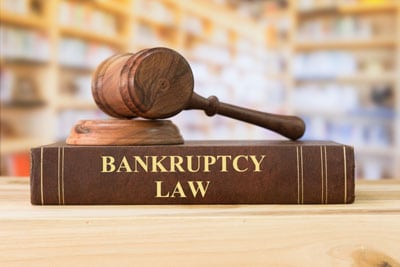
We have written elsewhere about the differences between Chapter 7 and Chapter 13 bankruptcies, the two principal types available to individuals. The principal difference is that the debtor in a Chapter 7 bankruptcy surrenders non-exempt property and in return for elimination of most common obligations.
Setting Up a Payment Plan
In a Chapter 13 bankruptcy, the debtor may retain most assets but, in exchange, must repay a portion of his or her debts under a court-approved repayment plan. At the successful conclusion of the plan, most remaining debts are eliminated. While a Chapter 7 case can often be concluded in fewer than six months, a Chapter 13 repayment plan remains in place for three or, in some cases, five years.
Moreover, the choice between Chapters 7 and 13 is not entirely the debtor’s to make. Only those individuals or couples deemed to have insufficient means to make any meaningful repayments may file under Chapter 7.
A Chapter 13 plan requires that the debtor pay to the bankruptcy trustee most income not needed for ordinary living expenses. The trustee then distributes this amount to creditors.
Keeping Up With the Payments
The most critical and obvious obligation of a Chapter 13 debtor is, therefore, making the required plan payments throughout the full three or five years of the plan. Failure to do so will result in dismissal of the petition, at which point creditors are again free to employ any legal method to collect.
It should come as no surprise that not all Chapter 13 plans succeed. What is surprising to many observers is how many fail. Research suggests that, as a national average, only one in three Chapter 13 bankruptcies succeeds. Great for a baseball batter, but not especially encouraging for those facing bankruptcy.
There are of course any number of reasons for this rather dismal success rate. However, our experience shows that there are several that occur with regularity.
Inability to Stick to a Budget
While some debtors get into trouble by overspending, there are many other reasons, such as medical expenses or job loss, why otherwise responsible people suddenly find themselves drowning in debt. Regardless of the reason, however, few individuals considering bankruptcy have ever had to faithfully live within a budget and a fairly strict one at that.
Yet, that is exactly what Chapter 13 requires them to do. Adhering to that budget for three or five years is challenging for even the most committed debtors.
Life Events
Filing bankruptcy does not exempt the debtor from life’s vagaries. Over the course of three or five years, unexpected expenses, employment loss, illness, births and deaths can all have an impact on the debtor’s ability to adhere to the plan. However, plans can be modified if adequate reasons exist.
Having an experienced bankruptcy lawyer on your side and keeping him or her advised of significant life events is the best way to ensure changed circumstances are properly presented to the trustee and court.
Luck of the Draw
While bankruptcy trustees and judges are all governed by the Bankruptcy Code, bankruptcy trustees and judges have different approaches to their work. Some are more liberal in favor of debtors while others are known for a tendency lean toward creditors.
Since they are assigned when you file, as a Chapter 13 filer you are being committed to a long-term relationship with each. An experienced bankruptcy attorney will know the trustees and judges and can suggest strategies with their personalities in mind.
NOTE: This is for informational purposes only and does not constitute legal advice.